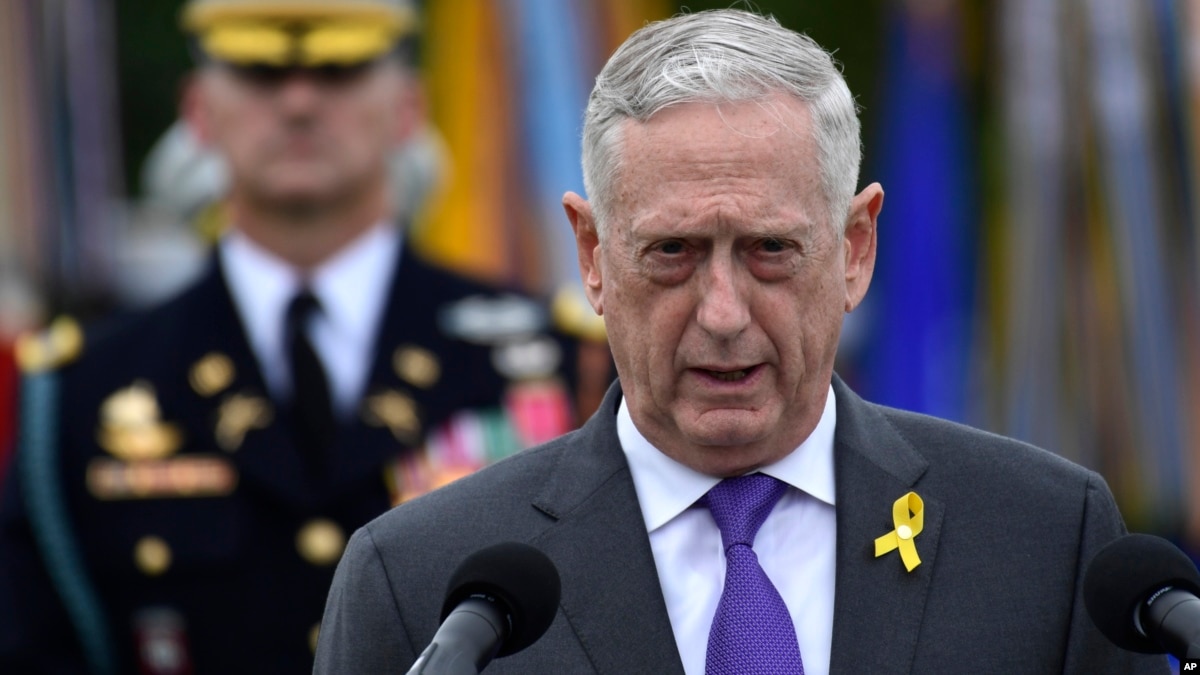
U.S. Defense Secretary Jim Mattis said on Monday he was seeking a way ahead for military ties with China after Beijing postponed military talks in protest at last week's U.S. decision to impose sanctions over China's purchase of Russian weaponry.
Mattis traveled to China in June in an attempt to deepen military-to-military dialogue with Beijing, even as Sino-U.S. trade tensions climb and anxiety in Washington grows over China's modernization of its armed forces and its increasingly muscular military posture in the South China Sea.
"We believe that we do have to have a relationship with China and Secretary (of State Mike) Pompeo and I are of one mind on this," Mattis told reporters at the Pentagon. "And so we're sorting out the way ahead right now."
China's Defense Ministry has said it would recall navy chief Shen Jinlong from a visit to the United States and postpone planned talks in Beijing between Chinese and U.S. military officials that had been set for next week.
It added that China's military reserved the right to take further countermeasures.
At the Pentagon, Lieutenant Colonel Dave Eastburn confirmed that the U.S. military had been informed that China's Navy chief would no longer meet America's top naval officer, Admiral John Richardson.
"We have no additional information at this time," he said.
On Thursday, the U.S. State Department imposed sanctions on China's Equipment Development Department, the branch of the military responsible for weapons procurement, after it engaged in "significant transactions" with Rosoboronexport, Russia's main arms exporter.
The sanctions are related to China's purchase of 10 SU-35 combat aircraft in 2017 and S-400 surface-to-air missile system-related equipment in 2018, the State Department said.
The sanctions are aimed at Russia. They fall under the Countering America's Adversaries Through Sanctions Act, or CAATSA, which was signed into law in 2017 to punish Russia for meddling in U.S. elections, aggression in Ukraine and involvement in Syria's civil war.
The mobile S-400 batteries, which include radars, a control system, and missiles with a range of up to 250 miles (400 km), were first deployed in Russia in 2007 and are considered Moscow's most effective defense against aircraft, missiles and drones.

No comments:
Post a Comment